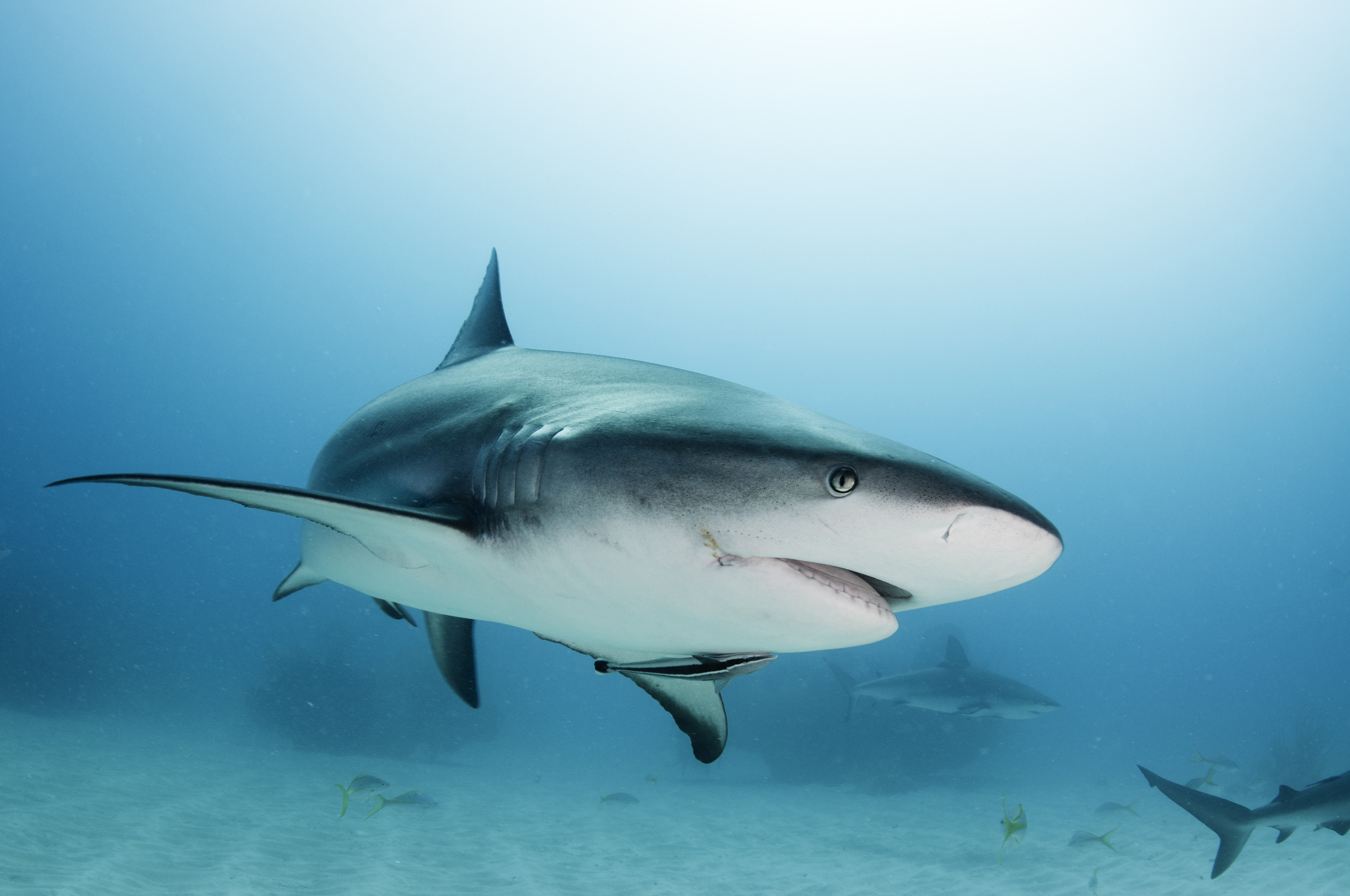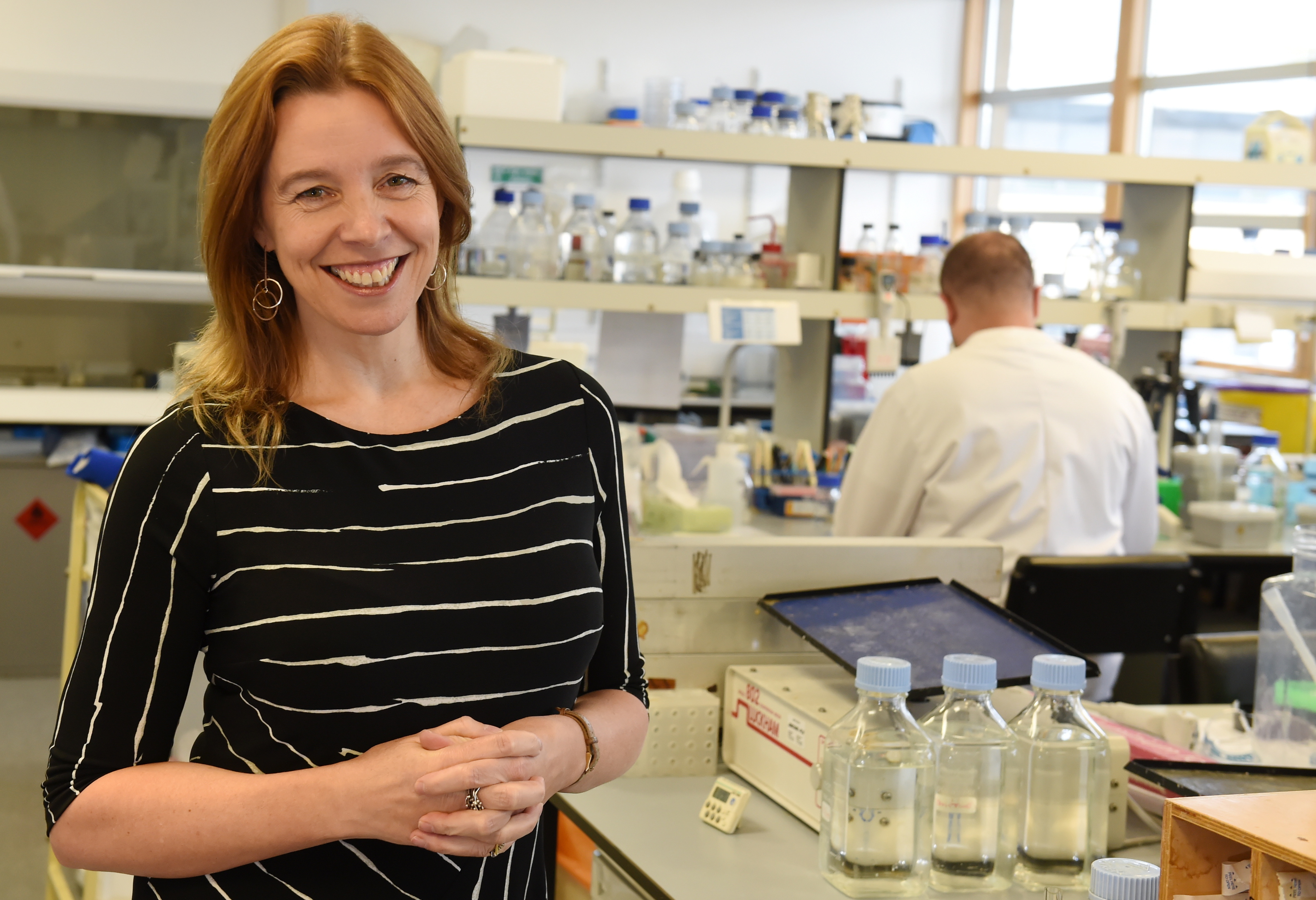
THEY are feared more for taking lives than saving them but scientists believe sharks could help in the fight against cancer.
Researchers have been studying antibody-like molecules in shark blood that they believe can help beat cancer.
And today they revealed they may be only two years from getting the treatment to patients.
Dr Caroline Barelle is leading research into the molecules, trademarked as soloMERs, and told The Sunday Post: “With investment I hope we would be in clinic in two years.
“We are targeting solid tumours. We believe soloMERs can ‘punch’ deeper into the tumour, entering and killing cancer cells.
“We are pushing forward with our pre-clinical data which is in the late stages of testing a new medicine to make sure it does what you think it will biologically.
“The next step is then making the medicine under really clean conditions and checking it to make sure it is safe before going into clinical trials.
“We are out looking for investors and/or pharmaceutical partners to get us there.” Dr Barelle, chief executive of Aberdeen University’s global biotech firm Elasmogen, reckons the treatment could also be used to transform the lives of patients suffering from a range of eye conditions.
And she would love nothing more than an investor of the stature of US Microsoft magnate and philanthropist Bill Gates to step up to the plate.
She said: “Bill Gates is a great example of someone who is reinvesting his wealth to help others in a truly philanthropic manner.
“The Gates Foundation is committed to resolving diseases such as malaria and HIV which affect the poorest people on this earth.”
SoloMERs first emerged about 20 years ago after a collaborative study between the Universities of Aberdeen and Maryland, USA, led to the discovery of an unusual antibody-like molecule in the blood of sharks.
Dr Barelle, who still lives in her home city of Aberdeen, said: “These incredible animals are ancient having first appeared in our oceans more than 450 million years ago. They are the oldest animals with a backbone to have an immune system similar to ours.
“We too are protected by antibodies and by understanding how this incredible protective system has evolved provides us with invaluable insights into how we can understand and critically treat many diseases.
“My first encounter with sharks was just more than 12 years ago when I joined a company called Haptogen which started to develop medicines based on soloMERs.
“I was then fortunate to continue with this research and lead teams within big pharma companies who continued to develop them.
“During this time drugs based on other types of antibodies were really changing the lives of patients but they are limited as to what they can do in the body as they are large, complex molecules.
“It was really the potential of these unusual soloMERs that drove me and my co-founder, Andy Porter to start a new company to take these forward to the clinic.”
Explaining how they work she said: “Antibodies are like your personal army – they look for nasty invaders in your body like bugs and bind to them and destroy them.
“They essentially protect your body all your life.
“What scientists have done is to make antibodies that can find diseases in your body like cancer and destroy them. The fantastic thing about shark soloMERs is that they are tiny antibodies so they can get into smaller spaces in the body.
“They are also very, very tough so they last longer. And finally they can be linked together like a daisy chain so they can attack more than one disease molecule. All together soloMERs are pretty cool molecules that can be made into medicines.”
In recognition of her groundbreaking work Dr Barelle was last year’s winner in the Rising Stars: Extraordinary Talent category of Scotland’s Life Sciences Annual Awards.

Enjoy the convenience of having The Sunday Post delivered as a digital ePaper straight to your smartphone, tablet or computer.
Subscribe for only £5.49 a month and enjoy all the benefits of the printed paper as a digital replica.
Subscribe